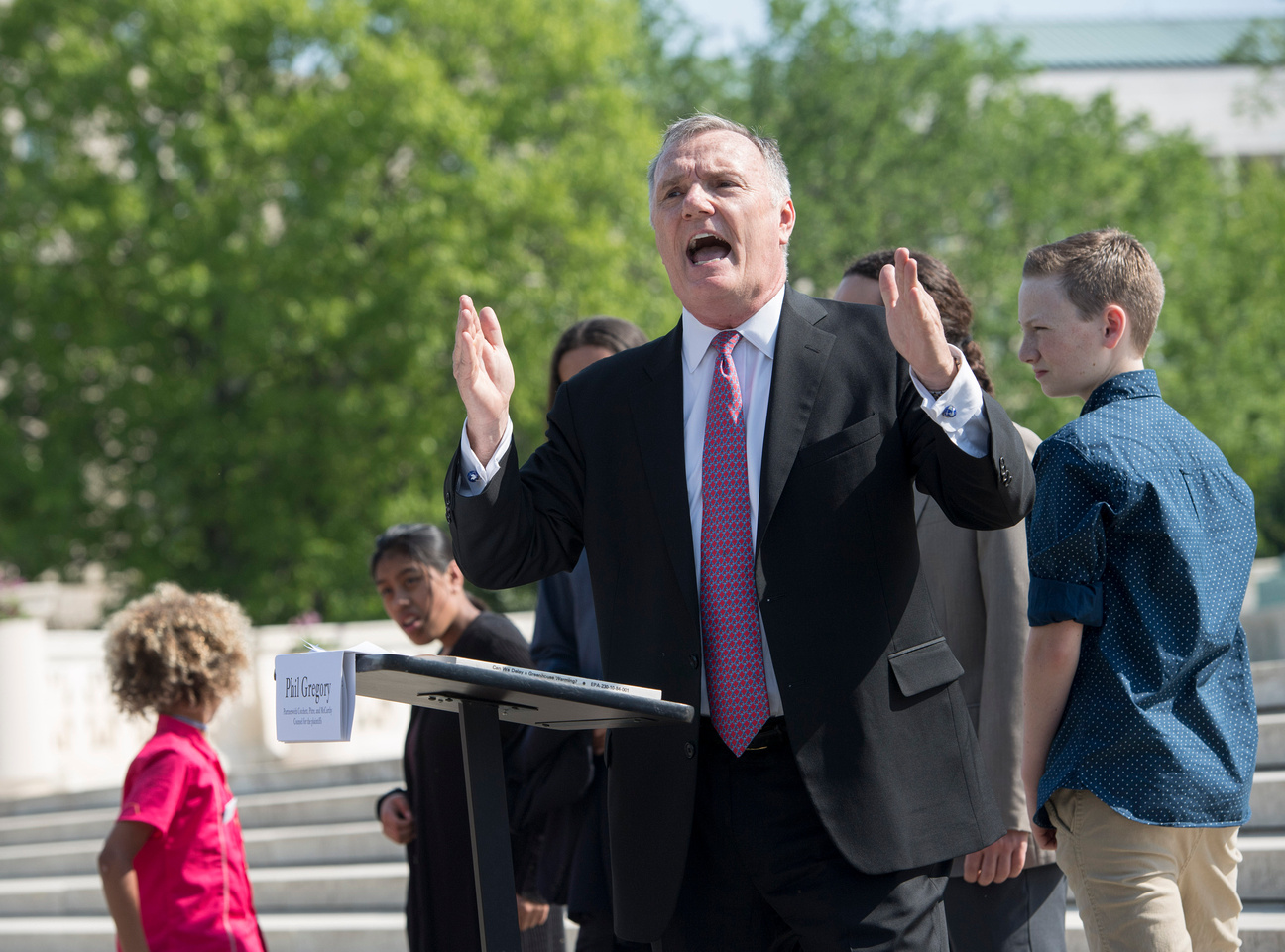Gregory ’76 drives childen’s lawsuit on climate change
December 7, 2018

Gregory is one of the lawyers working on Juliana v. United States, in which 21 children are suing the United States for failing to adequately counteract climate change.
Gregory first became involved in the case in 2010 when he met Julia Olson, founder of Our Children’s Trust, an Oregon based nonprofit organization which supports climate change action for the sake of future generations.
“[They] had the idea of going after the entire fossil fuel system, rather than saving one polar bear at a time or shutting down one power plant at a time,” said Gregory in a phone interview with the Orient.
But as a legal action filed on behalf of children who have been harmed by the effects of climate change, Juliana v. United States is no typical case—it takes on a creative approach to protect the environment. The legal theory behind it was, in part, inspired by Brown v. Board of Education, arguably the biggest court case of the previous century.
“[Brown v. Board] attorneys used an analysis of the effects on young African American children in having schools that were different than the schools that were being used by Caucasian children … [It was] the children that were being harmed by the systemic problem of segregation,” said Gregory. “[And] that’s what we’re facing, a systemic problem of catastrophic proportions.”
The bedrock of Gregory’s argument is that the government has knowingly allowed children to be harmed by the effects of climate change as a result of its environmental policies. He claims that the government’s inaction violates the U.S. Constitution, because the dangers posed to children by climate change have been, in part, created by the United States. But taking on the U.S. government is a hefty task, and Gregory knows he has a long battle ahead of him.
“If you’re dealing with your classic David vs. Goliath situation, ‘Juliana’ is certainly that situation,” he said.
Gregory felt that he had to leave the rest of his legal career to devote his time solely to the Juliana v. United States case. He works on Juliana pro bono in hopes that he can create a better future for his two-year-old granddaughter, Alice Gregory.
“I want her to have the same climate that I had growing up. I value her future as much as I value my own … [And] children are the most vulnerable. They don’t vote, and they’re not the ones that are going out and buying gasoline. They’re not the ones who are finding new ways to get fossil fuels out of the ground,” he said. “Children need an advocate. [They] need some group of people to watch out for them.”
Gregory believes his Bowdoin education prepared him well for his current career and imbued him with a passion for serving the Common Good. At Bowdoin, he completed an honors thesis in both his English and Government majors, which he says improved his ability to think critically and inspired him to go into law.
When asked what advice he has for students interested in pursuing careers in climate change activism, Gregory emphasized the value of taking a stand.
“It’s incredibly important to be active in that issue. And not only active in terms of the way you live your life, but also in an attempt to cause others to alter their lives, to recognize the realities of climate change,” he said.

Comments
Before submitting a comment, please review our comment policy. Some key points from the policy: